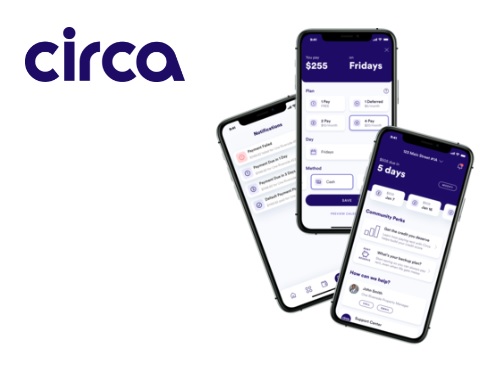Circa wants to personalise the rent payment schedule

Residential rents are paid on a fixed date in the lease (usually at the beginning or end of the month). This practice is becoming increasingly common in France and the United States, where a technology company called Circa intends to change this. In a responsible approach, its solution is committed to making rent payments more flexible, by customising the schedule or split payments.
FACTS
-
Circa is a US fintech that has created a mobile platform for borrowers. It offers payment options to modulate the repayment of mortgages and other loans.
-
Now it is expanding its proposition to also address US residential tenants and landlords. The promise is simple: to make rent payments more flexible by allowing them to choose the date of collection or to make instalments rather than a single payment.
-
User journey:
-
both tenants and landlords create an account in minutes;
-
Tenants can choose their payment method and customise their payment schedule by splitting the payment into up to 4 instalments, without affecting the landlord's payment;
-
the tenant can also modify his payment plan at any time;
-
notifications can be sent by Circa before each payment so that the user can check the status of his account and make a last minute modification if necessary.
-
-
Business model:
-
Circa charges landlords $1 per month for each lease submitted to its SaaS platform;
-
a fee is charged to tenants when they use the deferred or split payment service; half of this fee is returned to the landlords.
-
Circa also offers additional services to landlords (credit reports and delinquency management tool).
-
ISSUES
-
An inclusive solution: nearly 6 million tenants are reportedly affected by late rent payments, representing $41 billion in arrears each month in the United States, according to Circa's co-founder and CEO, Leslie Hyman. In addition to the trust issues that arise in the tenant-landlord relationship, these delinquencies lead to a decline in tenants' credit scores and a risk to their continued tenancy. It also estimates that among the large American insurers, nearly 20% of the deductions made on the 1st of the month fail and must be re-scheduled.
-
A service to landlords: Circa insists on the win-win nature of its offer. Facilitating the payment of rents indeed avoids unpaid rents and represents a real advantage for landlords and owners. Indeed, according to its estimates, evictions generate costs of between 3,500 and 10,000 dollars and only 17% of collection procedures are successful. Hence the value of introducing flexibility to keep tenants in place.
PUTTING IT INTO PERSPECTIVE
-
Fragmented payments are emerging everywhere as a new financing model that can make it easier for consumers and businesses to manage their finances.
